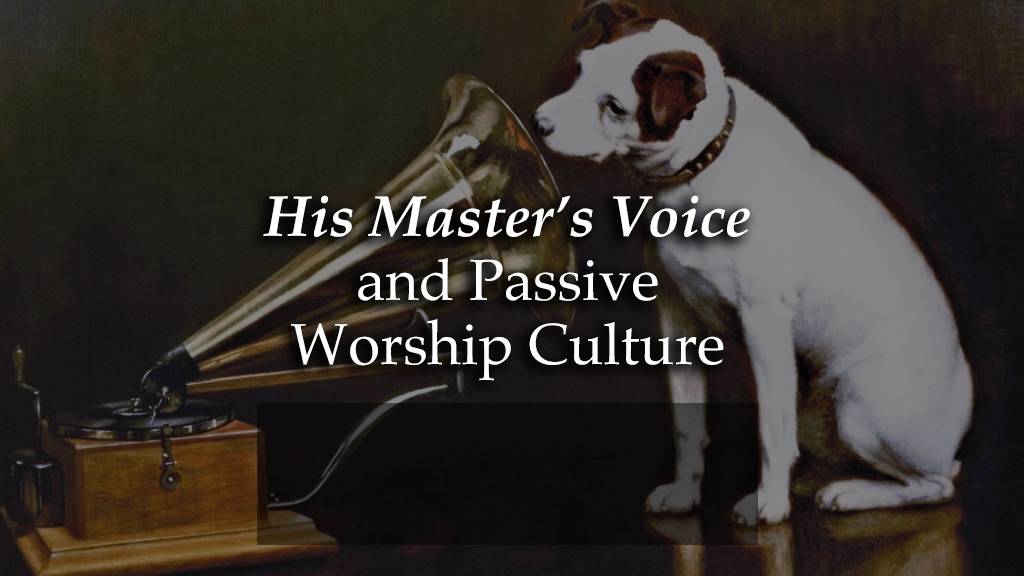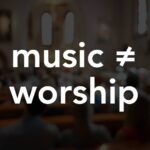Most are familiar with the late nineteenth-century English painting His Master’s Voice. It features Nipper, a fox terrier, staring into a phonograph and listening to a recording of his recently deceased owner. In the early 1900s, a revision of this painting became the trademark of the Victor Talking Machine Company. A consumer who was looking for a quality gramophone was told to “look for the dog.” As Americans lunged into the recording industry, it is doubtful that anyone knew then that the reverberations of this sound-breaking technology would be felt by the church one hundred years later. By and large, we have become passive worshipers.
A Brief History of Recorded Music
Within a decade, the gramophone was replaced by the recording disc, and Nipper helped push forth this new media with the same exuberance. Everyone wanted a record player, that is, until the late 1950s when the magnetic tape industry hit the market. The 1964 cassette tape and the 1979 Sony Walkman were two major developments in the tape industry. In the fifties, nearly every family had music playing in their living room, and in the seventies, the ears of many Americans here hidden by headphones.
As times changed, the nineties introduced the CD—a compact version of its larger vinyl cousin, and the turn of the twenty-first century gave way to the MP3 player. The 2001 Apple iPod would enable a listener to have hundreds of songs literally in the palm of his hand. Technology holds great value, but, as with any tool, it can be used for evil and great harm. It seems that the church is as mesmerized with media entertainment as Nipper is with his master’s voice.
The Dawning of Passive Worship Culture
Since the beginning of civilization, music-making was a community project that took place on back porches, around campfires, in cobbler shops, in family rooms, and in church houses. Music-listening was an activity available only for the richest in civilization. Up until one hundred years ago, if a young man was craving his favorite song, he would have to sing it with his workmates while toiling in the field, or wait until the end of the day when the family would gather on the porch to sing with neighbors.
Unfortunately, the rapid progression of music-listening through media has greatly affected the church’s approach to worship. Most worship is no longer active. After passive listening all week long and little attempt to ever make music, it stands to reason that Christians often want to be entertained while at church.
Biblical Worship Is Active Worship
The call to worship God is a call to active worship. Notice the expectation of the Psalmist in Psalm 100 to make, serve, come, enter, and give:
Make a joyful noise to the Lord, all the earth!
Serve the Lord with gladness!
Come into his presence with singing!
Enter his gates with thanksgiving, and his courts with praise!
Give thanks to him; bless his name!
Passive entertainment is not compatible with the gospel’s call to take up a cross and follow Christ. The church is commanded to go, preach, and baptize. Believers are called to fast and pray, to read and study the Word, to take and eat at the Table, to love and serve. The ethos of the entire Christian faith is active. Why should the worship of the church be any less?
The church must resist this new cultural norm to only entertain (and be entertained). This applies not only to the music of the worship service (of course, music and worship are not the same thing), but to the entire worship service, including preaching and teaching.







